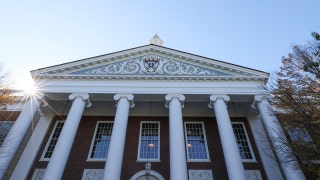
Why would a significant portion of the population criticize Christians for praying when it seems to be so effective within the Christian community? (iStock)
Within Christian circles, people often tell each other, “I’ll pray for you!” or ask, “What can I pray about for you?” But from the secular community, Christians often receive harsh criticism for placing faith in God and for trusting a supernatural healer to divinely intervene in personal matters like their health.
We are lambasted for praying for each other. But an undeniable truth has persisted from the beginning of time and certainly since the origination of the Judeo-Christian worldview. What’s this truth? It’s that prayer changes things. We can all point to scripture and to the personal experiences of either friends, family, or ourselves to attest to the power of prayer.
This got me thinking. Why would a significant portion of the population criticize Christians for praying when it seems to be so effective within the Christian community? I turned to scientific data to see what research has been conducted on prayer and health. Is there a correlation?
DR. KENT INGLE: ‘PRO-ABORTION BILLS' ARE INHUMANE, REPUGNANT AND VILE
What I found is this: Although science is ill-equipped to prove the existence of God, scientific research does show that prayer works. The literature I looked at states, regardless of God’s existence, elements of prayer are universally valid – across various religions, traditions, and practices. The act of prayer itself has beneficial physiological effects.
Prayer, much like meditation in Buddhism, or concentration on breathing techniques in Yoga, causes the mind and body to focus on singular focal points that align the mind, soul, and physical aspects of a person to lower cortisol levels, improve oxygen utilization, and confer numerous other psychological benefits.
Marilyn Schlitz, Ph.D., and lecturer at Harvard, says, “It's clear from the correlational studies within the epidemiology data that positive relationships exist between religious and spiritual practice and health outcomes on a variety of different conditions.” Moreover, she says that in a study and confirmation study on intercessory prayer, “the prayer groups had statistically significant improvements in outcome, suggesting that the intervention has clinical relevance.”
IF CHURCHES WANT TO GET MILLENNIALS TO ENTER THEIR DOORS, THEY NEED TO DO THIS
Researchers at the Heritage Foundation said, “We have a logical reason why religion might influence physical health through mental health, through enhancing social support, through influencing health behaviors, all affecting physical health outcomes.” So, at the very least, prayer is beneficial. It works. In fact, “Today, 101 medical schools incorporate patient spirituality in their curriculum, up from 17 in 1995. This fact suggests that these principles are being incorporated into medical education…”
While researchers may contest the idea of God answering prayer, many aren’t denying that it can serve beneficial roles in people’s lives. Shaya Love at Vice goes on to say, “Prayer and meditation could be extremely helpful, both to the body and mind.”
CLICK HERE TO GET THE FOX NEWS APP
While I’m sure the debate surrounding the existence of God will persist indefinitely, there’s no debating the power of prayer and its transformative impact in the lives of people throughout the world and throughout history. It’s time Christians acknowledge the empirical evidence and continue lifting up their friends, families, and communities in prayer.







































